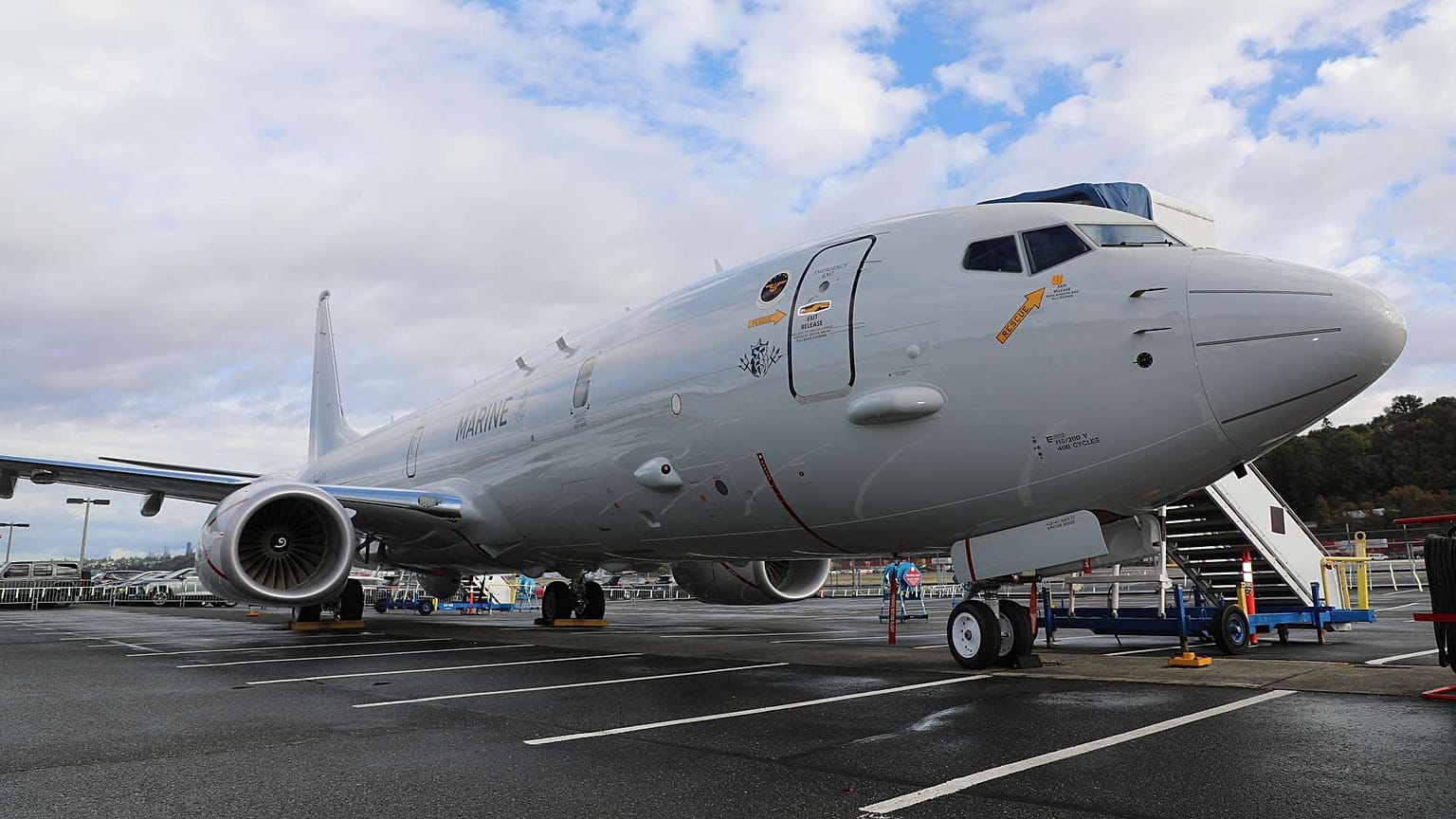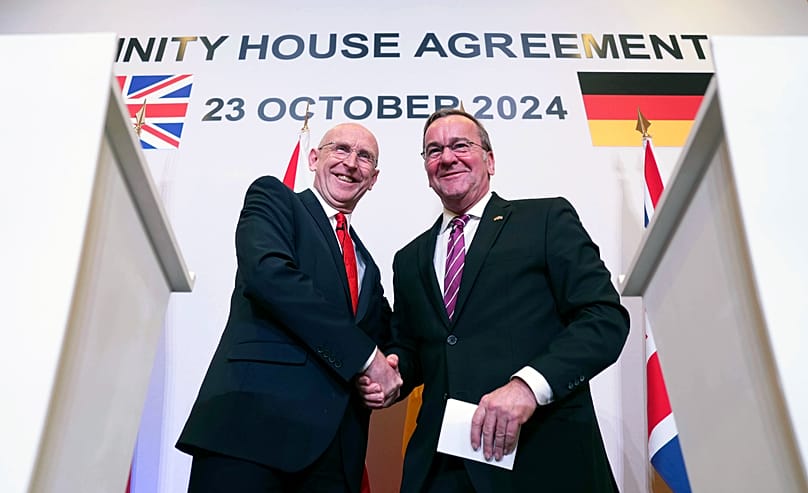Germany's first P-8A Poseidon aircraft arrived in Berlin, welcomed by Defence Minister Boris Pistorius. The aircraft will enhance maritime surveillance and combat capabilities.
Germany received its first P-8A Poseidon maritime patrol aircraft at Berlin's main airport on Friday, with Defence Minister Boris Pistorius personally welcoming the naval jet designed to detect and combat Russian submarines in the North Atlantic.
The Boeing 737-based Poseidon arrived from the US via Iceland as the first of eight to be delivered by 2028 at a cost of €3.1 billion.
The aircraft can fly over 7,000 kilometres and carry five MK-54 lightweight torpedoes weighing 300 kilograms each, plus four AGM-84 Harpoon anti-ship missiles.
"The P-8 will sustainably strengthen our capabilities for maritime reconnaissance, global maritime surveillance and, in particular, for detecting and combating enemy submarines," Naval Inspector Jan Christian Kaack told the domestic press, describing the aircraft as a "flying sentinel".
Armament for underwater warfare
The Poseidon deploys sonar buoys that emit sound waves to locate submarines, with underwater microphones recording echoes to pinpoint both conventional and nuclear submarines. The aircraft can also attack land targets.
Germany intends to deploy the aircraft primarily in the gap between Greenland, Iceland and the United Kingdom, NATO's main supply artery, where Russian subs could disrupt supply lines during conflict.
Russian subs could also attack from the Baltic Sea via St Petersburg or from the Mediterranean via the Strait of Gibraltar.
The tactical crew includes three pilots, two tactical coordinators and six sensor operators.
Lack of investment left Europe's waters inadequately protected despite thousands of kilometres of critical cables laid across seabeds connecting northern and central Europe.
Russian submarines repeatedly attempt to spy on cable systems, scout nodes and cause damage, while Moscow's shadow fleet has been repeatedly accused of underwater cable sabotage in Europe's north.
The UK and Germany have signed the Trinity House Agreement in 2024 to jointly patrol the North Sea and North Atlantic, with German Poseidons to operate from Lossiemouth military base in Scotland.
"It's about knowing where they are and what they are doing. We can do that with P-8 Poseidon," Pistorius said during a Scotland visit weeks ago.
NATO partners, including the United States and Norway, also operate the maritime patrol aircraft.
The Poseidon replaces Germany's P-3C Orion aircraft, propeller-driven planes purchased second-hand from the Netherlands in 2004 that are now around 40 years old. Portugal purchased six of the retiring aircraft to expand its existing P-3C Orion fleet.
The aircraft will be stationed at Nordholz airbase in Cuxhaven district, a NATO reconnaissance base, where it arrives later Friday.
















